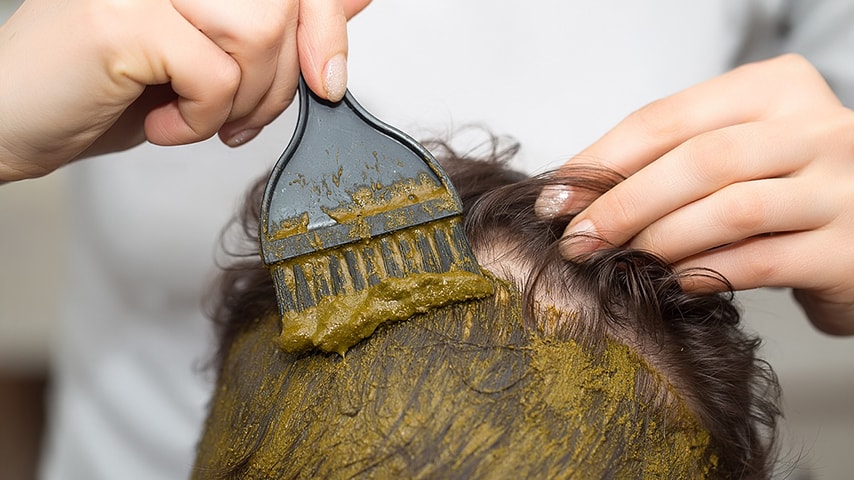
Are you worried about greying hair?
Grey hair is often considered as the first sign of ageing. But do you know that it can be connected with many other factors too.
Introduction
Getting up one day, looking yourself into mirror and realizing that you have started having grey hair can make you worried. We adore our hair and like them to be in natural colour. If you are in your mid thirties then it is a starting of a normal physiological phenomenon of ageing which you have to accept with grace. But if it occurs in your twenties than you are bound to get worried as greying hair are generally considered as the first sign of ageing. On the other hand it can be a manifestation of underlying illness or nutritional deficiency. To understand it better we should first understand the basic phenomenon of how our hairs get grey?
What gives colour to hair?
Hair colour or hair pigmentation in humans depends on the presence of melanin and other physical factors. Range of colours that are formed by melanin varies from shades of grey, brown, black, red and yellow depending on the amount of eumelanin (black) and pheomelanin (red). In black hair follicles, deposition of melanin within melanosomes continues until the whole unit is uniformly dense. Lighter coloured hair shows less melanin deposition, and blonde hair follicles show melanosomes with a moth-eaten appearance. Red and blonde hair follicles have spherical melanosomes; those in brown and black hair are ellipsoidal. Pigment is incorporated into hair cortex. No pigment is donated to presumptive cuticular and internal root sheath cells, although pigment granules have been detected in the cuticle of human nostril hair and in the coats of many animals.
Greying hair is medically known as CANITIES. When we talk about greying hair it has a very peculiar and interesting pattern, moustaches and beard grey earlier than scalp or body hair. On scalp temples usually show greying first, followed by a wave of greyness spreading to crown and later to the occipital area commonly called pony tail area.
Causes
There are lot of factors that cause greying of hair but whenever we talk about greying hair we end up correlating with either stress or age. Let us understand how diet, certain illness and genetic conditions also play a role in greying hair.
- Age: As we age our hair follicles produce less melanin. Hence due to the cyclical regenerating process of the hair it is more likely that hair will grow back as grey if you are in mid or late thirties.
- Genetics: At what age our hair will turn grey also depends on genes that we have inherited from our parents or grandparents. So if you have a family history of premature greying it is more likely that your hair will also grey at an early age.
- Stress: Surprisingly stress alone in itself has not been shown to cause greying hair but stress can induce rapid hair fall or Telogen effluvium in which hair shed at a faster speed than normal. But if you are in your mid-thirties there are chances that hair that grow back are grey.
- Alopecia areata: Rapid onset, allegedly ‘overnight’, greying of the hair has excited the literary, medical and anthropological worlds for centuries. Historical examples include Sir Thomas More and Marie Antoinette, whose hair became grey over the night preceding their executions. The probable mechanism for rapid greying is the selective shedding of pigmented hairs in diffuse alopecia areata, the non-pigmented hairs being retained. In general, greying of hair is progressive and permanent, but there are occasional reports of re-pigmentation of previously non-pigmented hair.
- Diet: The kind of diet we have also affects our hair. If you have a diet that is poor in calcium and iron you will have early greying of hair.
Prevention
Although grey hair is one truth that we might face one day, it may be sooner for some and later for others. We cannot completely stop hair to turn grey but surely prevent the premature greying of hair. Here are some tips and tricks that can prevent premature greying of your hair.
- Always cover your hair with scarf or a hat when you go out to prevent damage of hair by strong sunlight, dust and pollution.
- Have a diet rich in calcium, iron and vitamins as it prevents premature greying of hair. Include milk, sprouts, cheese, fish, meat and seasonal fruits and vegetables in your diet.
- Avoid excessive use of styling products and harsh chemicals.
- Always use good quality products for your hair.
- You can try following these but if it is in your genes and you have a family history of premature greying then be mentally prepared to sport the silver tresses.

Add a comment